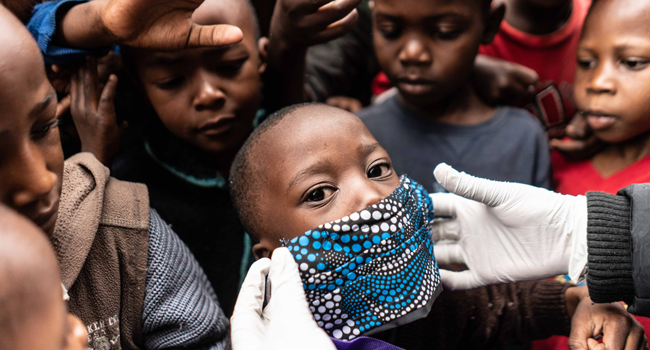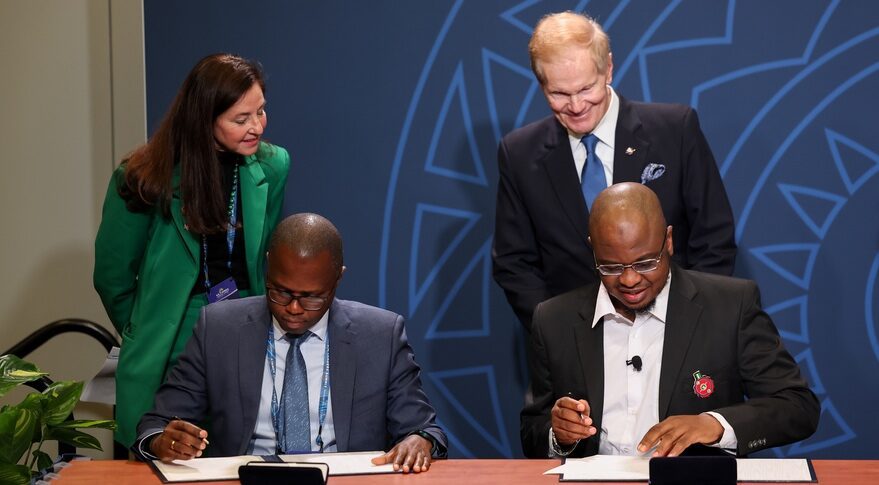Coronavirus has now infected more than one million people in Africa, but hopes that the pandemic may be peaking in some countries are mingled with fears of a second wave.
Nations across the continent have recorded 1,011,495 infections and at least 22,115 deaths, accounting for around five percent of global cases, according to an AFP tally as at 1100 GMT Friday.
Just five countries account for 75% of all cases, says the continent’s health watchdog the Africa Centres for Diseases Control.
Some countries have recently seen declines of around 20 percent in daily cases but it is too early to confirm this as a trend, according to the World Health Organization (WHO).
“African countries are doing their best, despite… limitations,” such as weak health systems, Mary Stephen of the WHO Africa office, told AFP Friday.
She, however, warned against the public complacency that can develop in prolonged outbreaks.
“Because we don’t see many people like we used to see in Italy, like 1,000 people dying (a day), people tend to relax, they think the risk is not so much in Africa”.
“We need to avoid complacency,” she said in a phone interview from Brazzaville.
Countries with high infections relative to the size of their populations include South Africa, Djibouti, Gabon, Cape Verde and Sao Tome and Principe. East African nations Rwanda and Uganda have managed to significantly slow down transmission, while Mauritius has flattened the curve.
Here is an overview of key countries:
South Africa
The continent’s most industrialised economy has notched up more than 538,184 infections, more than half of the continental caseload, and the fifth biggest in the world.
Numbers of daily infections have slightly decreased in recent days to below 10,000 cases — compared to an average 12,000 during much of July.
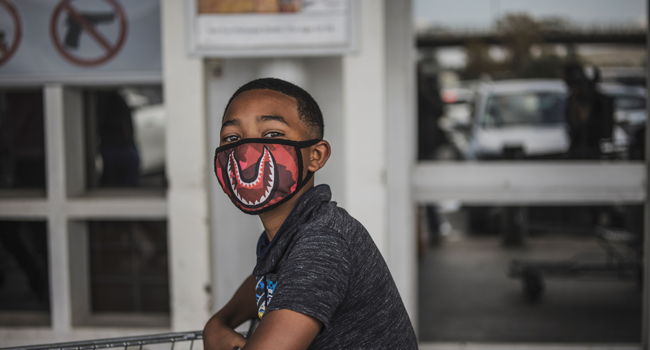
Health Minister Zweli Mkhize said on Tuesday that cases in the epicentre, the commercial hub of Gauteng province, appeared to be plateauing.
But he warned “we are not out of the woods yet” as the risk of a second wave remained.
South Africa imposed one of the world’s toughest lockdowns in March, including a ban on sales of alcohol and cigarettes. The restrictions have been progressively eased since June.
The country has some of the best healthcare facilities on the continent, but the World Health Organisation (WHO) this week deployed 43 experts to “strengthen” the nation’s response to the pandemic.
Its problems include more than 24,000 infected health workers — a tally bigger than the national caseload of many other African countries.
Egypt
Egypt became the first African country to report a coronavirus case on February 14. So far, it has officially registered the continent’s second highest number of cases at 95,006, including 4,630 deaths.
Numbers of daily new infections have recently been falling steadily. From an average of 1,500 previously, new cases plunged below 200 this week.
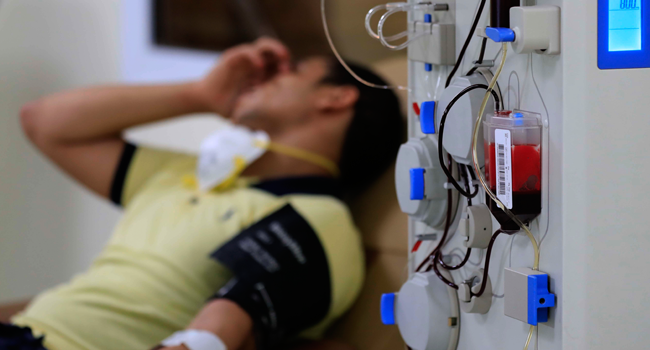
Khaled DESOUKI / AFP
Jihane al-Assal, who heads the government’s anti-coronavirus scientific panel, told a TV talk show “Egypt has passed the peak of the pandemic”.
At the weekend she announced the gradual closure of isolation hospitals, while assuring that the government was “preparing” for a potential second wave of the pandemic.
However, the country’s health system has been severely strained and came close to “collapsing”, according to the doctors’ union, which recorded at least 134 deaths among its members due to COVID-19.
A curfew imposed in March was lifted at the end of June.
Regular domestic and international air traffic resumed on July 1 and tourism, a key income generator for Egypt, is slowly picking up.
Nigeria
Around 45,244 cases have been recorded in Nigeria, Africa’s most populous nation, as well as more than 930 deaths.
In June, the caseload rose each day by between 500 and 800 but the pace has dropped more recently to between 300 and 400.
Authorities say they are also gearing up for a likely second wave as restrictions are eased.
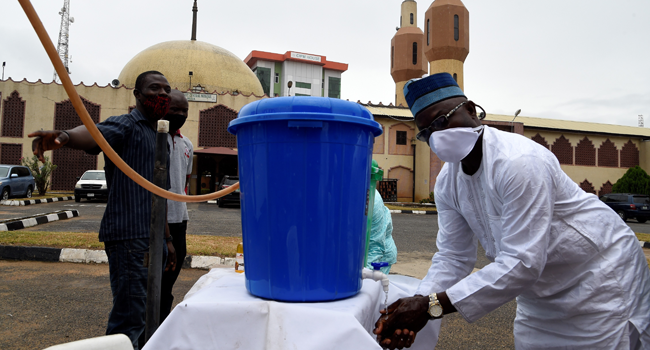
“New rise in cases are to be expected,” said the chief of the presidential task force on COVID-19, Boss Mustapha.
Nigeria carries out only 3,000 tests per day, about a tenth of the number in South Africa, which has a much smaller population of 58 million.
The disease epicentre in the country is the commercial hub of Lagos with a population of 20 million. The authorities are loosening lockdown restrictions, allowing churches and mosques to re-open.
Algeria
Algerians spent a bleak Eid-al-Adha festival under a strict lockdown that discouraged family visits and banned movement into or out of 29 of the country’s 48 wilayas (prefectures).
The nation is the fifth worst-hit in Africa in terms of infections — a surge in the past few weeks has brought the total to over 33,626.
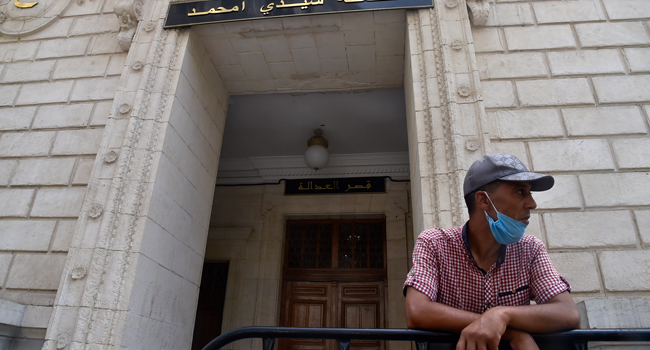
Algeria has the continent’s third highest number of fatalities at 1,273, after South Africa and Egypt.
The pandemic has taken a huge toll on the country’s economy, which is also impacted by the collapse in fossil-fuel prices.
Ethiopia
Ethiopia, Africa’s second most populous country, has seen a sharp upward trend with infections doubling in less than three weeks in July.
It has so far recorded more than 20,900 cases and over 365 deaths.
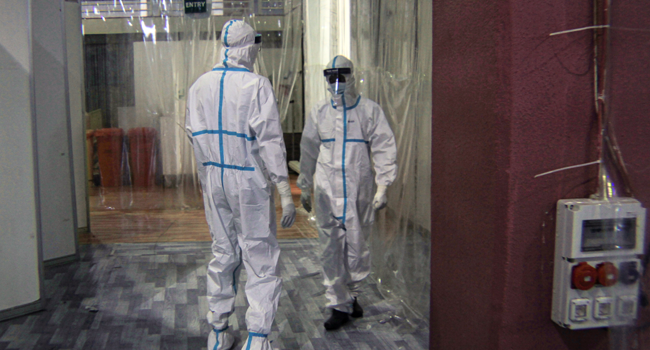
AMANUEL SILESHI / AFP
The figures are small relative to a population of 110 million, but the WHO frets unrest sparked by the killing of a pop star from the Oromo ethnic group could further accelerate transmission.
The upward spiral is coinciding with mounting signs of virus fatigue.
Once-ubiquitous hand-washing stations are becoming scarcer, hitherto-empty restaurants are filling up, and even some health workers say they are struggling to maintain the same vigilance they had in March.
Around three-quarters of all COVID-19 cases in Ethiopia are in the capital Addis Ababa.
Zimbabwe
Zimbabwe is among the countries where daily infections are steadily rising: numbers of diagnosed cases doubled over 10 days last month and now stand at 4,395 including 97 fatalities.
The impoverished country is in a particularly precarious position.

STR / AFP
The health system is struggling with shortages of basic drugs and equipment, as well as overburdened and underpaid staff.
Nurses countrywide have been on a go-slow for months demanding improved pay and coronavirus protective gear. They have since been joined by senior and junior doctors.
Burying a minister who died from COVID-19, President Emmerson Mnangagwa pleaded with health workers to act responsibly, promising their grievances will be addressed but not “at the expense of the loss of lives”.
“When the pandemic spreads and the death toll rises there are no winners, none at all. We all die,” he said.
AFP

